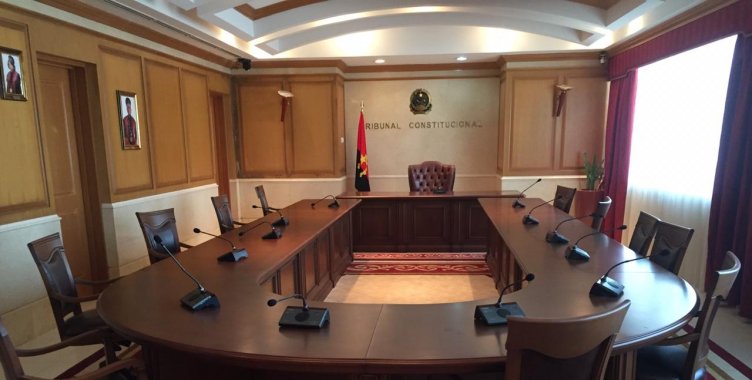The head of state, João Lourenço, nominated on Thursday judge Laurinda Jacinto Prazeres Cardoso as president of the Constitutional Court, being simultaneously relieved of her post as secretary of state for Territorial Administration.
In addition to having served in the government, Laurinda Cardoso also integrates the Political Bureau (BP) of the Popular Movement for the Liberation of Angola (MPLA, in power), but for Rui Verde the fact that the judge is in the ruling party's top body is less relevant than her previous activity as Secretary of State for Territorial Administration, since April 2020.
"This appointment has positive and negative aspects. It is positive the fact that there is a female reinforcement in the TC, but there is an aspect that worries, not exactly the fact that she belongs to the BP of the MPLA, because by now she must have resigned, but the fact that she comes directly from the executive, having, therefore, a habit of obedience to the President of the Republic," he commented.
Rui Verde stressed that this "is not illegal," but in the current "hot climate" in Angola, with the country preparing for general elections in 2022, "perhaps it would have been good to indicate a person without recent links to the executive branch.
Questioned about the party connection, taking into account that the TC will have to make a decision on the impeachment process against the president of the main Angolan opposition party, UNITA, Rui Verde insisted that this is not an essential issue, since many BP members do not even actively exercise these functions.
"Independence is expected of the court and, obviously, the judge will be under intense public scrutiny, much more than would be normal. It is necessary and fundamental that the TC has credibility in its decisions," he said.
As to whether the composition of the TC is balanced enough to guarantee this impartiality, Rui Verde stressed that the TC is not equivalent to a parliament: "We cannot view its composition taking into account party affiliation".
Therefore, "there is a leap of faith".
"We have to believe that judges become independent when they go there and perform that function impartially," he said.
Although, until now, the most common position has been one of deference to political power, he added.
"We are not expecting a revolution, but we also don't know what is going to happen, I can't say whether there will be independence or not", referred the jurist and academic, specialist in African affairs.
He stressed, however, that today civil society looks at the courts differently.
"People today look at the courts, they evaluate the judges, the decisions are scrutinized, and this did not happen before," he said.
Which ends up being, he continued, "a pillar of independence for the courts, which know that they are being watched by public opinion and that decisions will be scrutinized."
The vacancy in the TC came after the former president, appointed to the post in 2017, left the post at his own request, a departure that "was already expected," according to Rui Verde. The jurist recalled that the National Assembly passed a law regarding the retirement of judges of any jurisdiction at age 70, but, he maintained, Manuel Aragão "never felt good" in those robes.
The desire to leave office was expressed by Manuel Aragão after having distanced himself "from most of the decisions" contained in the ruling that approved the constitutional revision, warning of the "suicide of the democratic rule of law" by admitting the hierarchy between higher courts.







